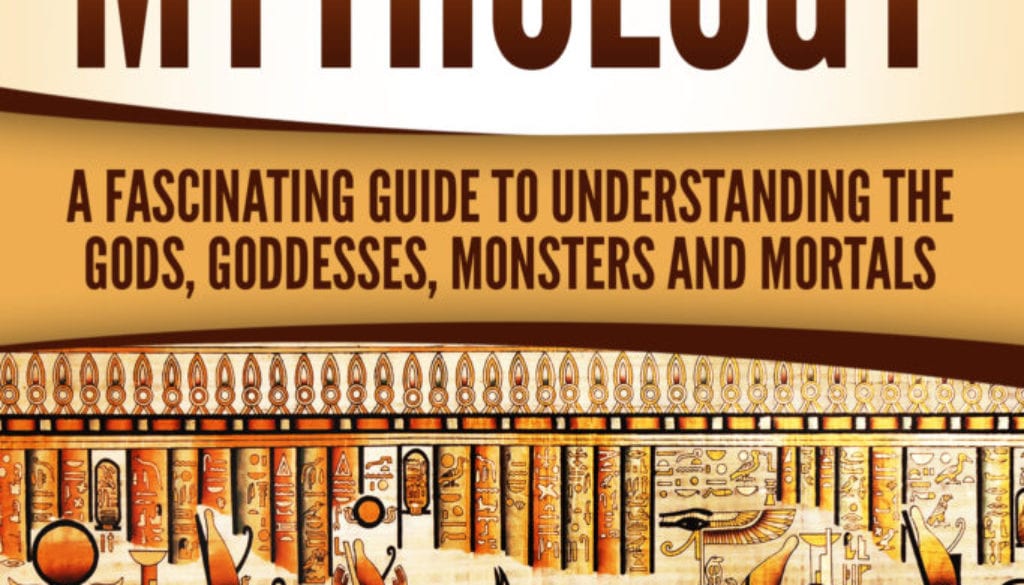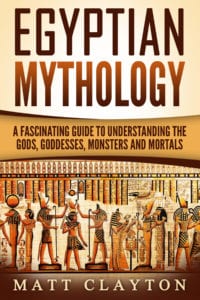Apep: Great Snake of Chaos (Egyptian Mythology)
There weren’t too many true monsters in Egyptian mythology, unlike the myths of many other cultures. The Norse had their Kraken and great wolf, Fenrir. The Greeks had their Scylla, Charybdis, Echidna, and Typhon. In Egypt’s lore, the only true monster was chaos which took the form of a giant snake. Its name was Apep (Apophis in Ancient Greek). We will look more closely at this creature in a moment.
Fearsome Gods of Egypt
Many of the gods of Egyptian mythology could, at times, be fearsome, but quite often it was to the enemies of Egypt (Kemet) or to those who had done great evil.
For instance, Am-heh, with a name that meant either “eater of eternity” or “devourer of millions,” had the head of a dog and body of a human, and lived on a lake of flame in the underworld. If you got on his bad side, no one but the god Atum-Ra could calm him down. But this was only another reason to live a good and righteous life.
Early in the history of the universe, Ra discovered that his mortal children—humans—had grown dissatisfied with peace and order. They wanted to overthrow Ra, the ruler of the universe, and were plotting to take his place. This deeply troubled Ra that his creation would be working with chaos to upend the order of things.
“What shall I do?” Ra asked of his fellow gods. “It’s all I and Sett can do to hold off Apep when I bring light to the world each day.”
“What should we do with anyone who threatens creation?” asked Hathor. “A criminal must be punished.”
“Or eliminated,” said Shu.
Ra brooded for a moment and finally nodded, turning to Hathor. “Do you have a suggestion?”
Hathor started to reply, but Tefnut spoke instead. “Hathor’s daughter, Sekhmet, could slaughter them. She seems well suited for that kind of task. As a lioness, she can hunt them down and devour them.”
Ra took a deep breath and said, “Sekhmet, come forth. I have need of your talents.”
The lion goddess moved forward to stand before Ra. “Yes, your eminence. How may I serve you?”
“The humans have become egocentric. Their selfishness threatens the very fabric of all creation. I want you to devour them all. Remove their kind from the world.”
“I understand, Lord Ra. But do you realize that once I start, the bloodlust will blind me to any other needs and plug my ears to any other requests?”
“I understand,” replied Ra. “Let it be done. Begin now.”
So, Sekhmet turned from the Ennead and all those gathered in attendance. She went out to the world at large and began slaughtering every human that she could find—man, woman, and child. With her claws, she slashed at their bodies, spilling their blood over everything. She would wallow in that blood and then drink it up. The carnage had begun.
The following day, as Ra moved the sun across the sky, with Sett at the prow of his barge to fend off Apep, he looked down at the world. From even there, he could hear the wailing. He could smell the fear and death.
“Tehuty?” said Ra, turning to the god of wisdom and knowledge. “What do you think of this thing that Sekhmet does below us?”
“While it is true that many of the humans were plotting to overthrow the gods, including you, my Lord, there were some who possessed righteous hearts. Certainly, those who held chaos in their hearts should be punished, but—”
“But you think it was wrong to kill them all.”
Tehuty nodded.
“And Maat? What do you say about all this?”
The goddess of order took several moments to gather her thoughts before speaking. She knew that quick words could create their own chaos. “My Lord, what you have started has its own wisdom. Certainly, the humans have now grown fearful of the gods and many have become repentant for their conspiracies. And I agree that a few were never so treasonous as to deserve such a painful death. If only there were some way to keep a few of the humans to see if the threat of extinction has made them sufficiently humble.”
“But how?” asked Ra. “Sekhmet said herself that she is unstoppable now that she has started drinking up the blood. Would it be valuable to save a few? They had such potential.”
Tehuty nodded. “Saving a few, my Lord, would be a good thing. How? Perhaps we could make Sekhmet drunk so that she would forget her bloodlust.”
Ra laughed and shook his head. “Brilliant suggestion, but how would you carry it out? I don’t see her slowing down to indulge in such things.”
“She seeks only blood,” said Sett. “Give her more blood.”
“Yes,” said Ra. “Make seven thousand jugs of beer. Thicken them and add a color to make them look much as blood. Then pour the beer onto the land before her so that she drinks it up instead of the blood.”
By the next day, the jugs of beer had been brewed, thickened, and colored. All of the gods helped to pour the red liquid before the rampaging Sekhmet. Sure enough, she stopped to drink it all and when she was done, she walked a few more paces and sleepily lay down to rest. When she awoke, Ra was there to give her a new command.
“My dearest Sekhmet,” said Ra.
“My Lord,” she replied, looking away as if burdened by a considerable guilt. “I feel my task is not yet complete.”
“But it is,” said Ra. “You have done well and I now need a few of the humans to remain alive so that they may learn humility from what you have accomplished.”
“I understand.”
And so, Sekhmet had become a scourge to humanity, but only for a brief while. Mankind had called her wrath upon itself.
The Meaning of Apep
Before creation, all was chaos—without form or purpose. This was known as Apep, and it took the form of a giant snake.
It was the job of the gods to dispel the darkness of chaos and to replace it with order and light.
Occasionally, Sett would become overwhelmed while attending to the prow on Ra’s barge. Apep would attempt to swallow the sun, blotting out its light, but always Sett would regain control of the situation, repel Apep and restore the light of the sun.
In the world of reason and science, we know that the “swallowing” of the sun was merely an occurrence of a solar eclipse by the Moon. The order of our physical universe is merely the result of physical law’s constancy and continuity.
Throughout Egyptian history, the pharaohs were agents of the sun in dispelling the chaos of the uncivilized folk who were always attempting to invade their lands. In many ways, those uncivilized people were agents of Apep, destroying the order of things. Thus, all of the Egyptian gods were monsters to the enemies of Kemet and to the instruments of Apep.
Now you can grab the Kindle book below for free by clicking here.


